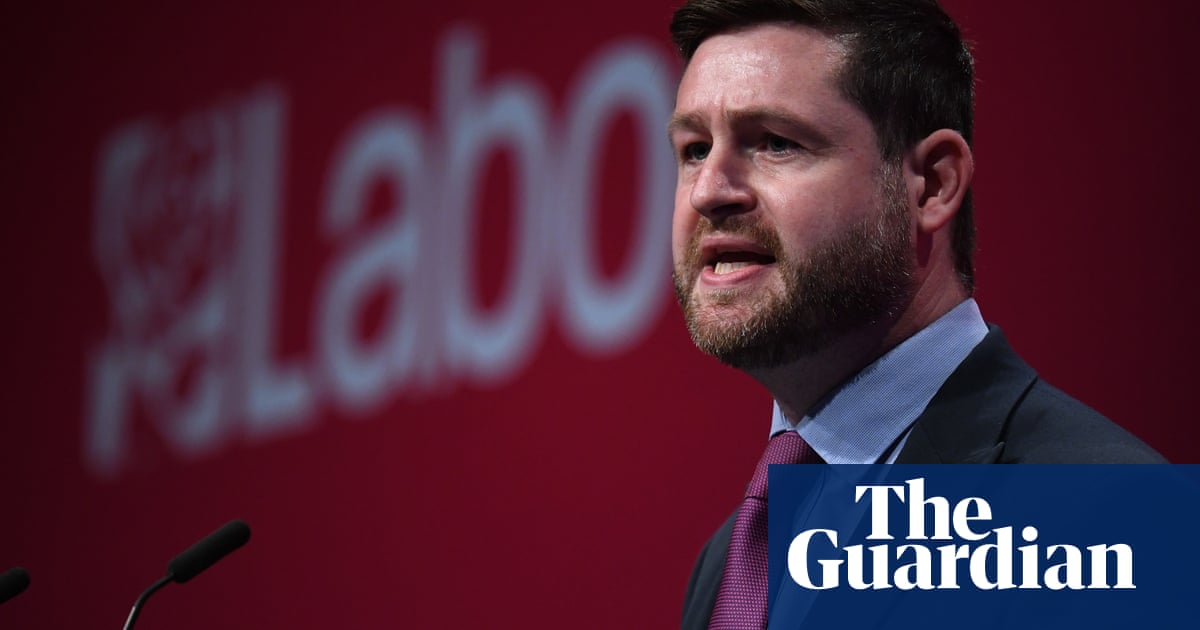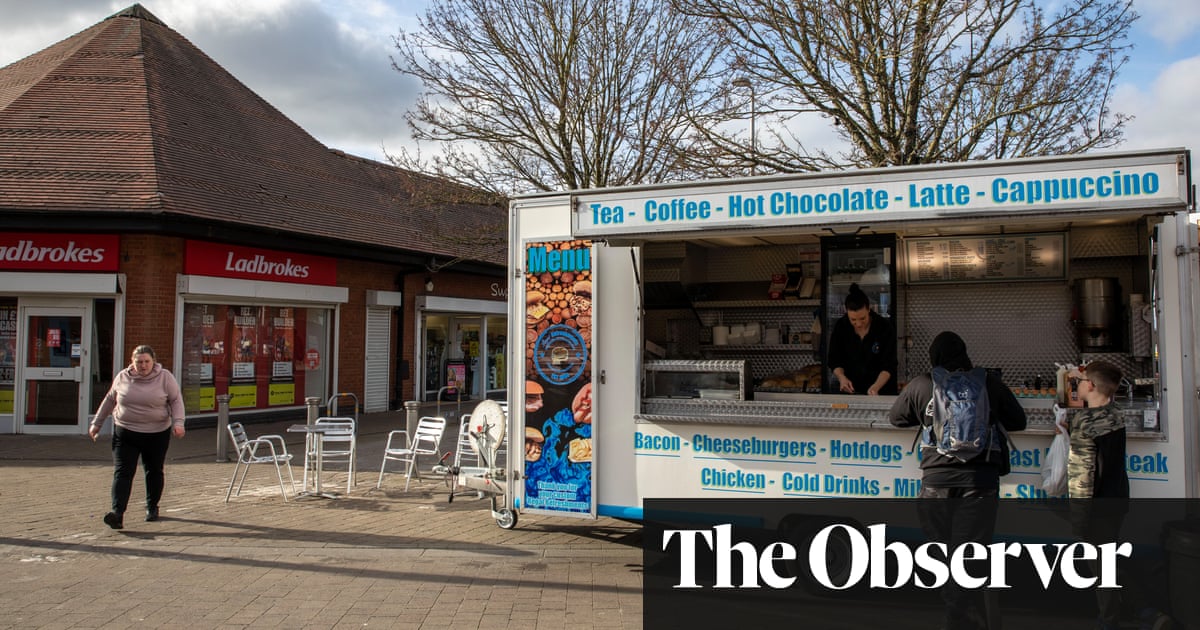
You won’t find Jim McMahon standing in the rolling fields of his family farm, or posing with newly born piglets in his rural constituency.
If Labour wins the next general election, the shadow environment secretary will be unlike many of his predecessors in the job, who are often from farming backgrounds. McMahon grew up in inner-city Manchester and brought up his children in Oldham, where he has lived for more than 20 years and been an MP since 2015.
McMahon, 42, is palpably angry when he talks about the mockery he faced when given the environment brief because of his working-class background and his father’s job as a lorry driver, with some critics saying that choosing him meant Keir Starmer didn’t care about rural life. “I reflect on how much of that is about whether you’re from a rural, urban or coastal area, or how much of it is about class,” he says.
“I could be from an inner-city university, very middle-class, very educated, and I don’t think that comment would be made. I do think there was a snobbishness about where I live and where I was raised, but I also have interpreted it as a bit of snobbishness about my working-class background.”
The idea that you have to have a farming background to be in the Department for Environment, Food and Rural Affairs is a fallacy, he thinks. “The art of politics is how do you advocate for people, how do you live in people’s shoes? Do you need to be a farmer to represent the farming community? Well, I’d say I could be a farmer but then what about the fishing community, what about those who are nature activists or environmental activists, or those who are passionate about animal welfare, and the protection of wildlife? You have to be able to hear and speak to all of them.”
Making sure that people from every background have greenery around them, access to parks and trees and wildlife is a passion for the Labour MP, and one of the main reasons he went into politics. “I grew up in Manchester, then moved to Oldham where we set up our family home.” As a young local councillor, tree-planting was one of his passions, while flower-planting turned into a bit of an obsession. McMahon worked evenings and weekends on filling the streets with flowers and talks proudly about getting Oldham for the 2015 North West in Bloom competition.
Raising money to improve and increase the number of public spaces, parks, playing fields and community allotments was also a priority. As he raised his children, he found himself thinking even more about the green space around them. “That’s when I started to think and reflect on the place I was raising my child, you know, the fact that there wasn’t good enough green space so the streets weren’t particularly safe for a child to play out on.”
A Labour government would improve people’s access to both urban and rural green space, he says.
“Whether it’s our immediate neighbourhood with access to good quality local urban spaces, or village greens, a lot of people actually are denied access to that immediate recreational space, and I think we can do far more. I’m fortunate enough to live near an urban country park. And for me that is our little slice of nature, our little slice of the environment, and we care passionately about it and every one of my neighbours does too. I want the same for every part of the country.”
Projects such as the tree-planting scheme he led help people feel connected to nature. “When you open your front door and you come out on to the street, and you see the changes of the season on that one little tree that’s been planted right from your front door, it does make a difference. The trees that we planted in October, by the time it was Christmas, the kids and the families have come out and decorated them in tinsel because they felt a connection to that single tree that they were given access to.”
As environment secretary he would consider expanding national parks and possibly creating new ones. He wants to leave a legacy which remains generations after he is no longer in politics.
Environment and nature groups have been unsure what to think about Labour’s green offering. While Keir Starmer stood on a platform of many Green New Deal policies while being elected as leader, he appeared to back away from some of them once in office. However, this year at Labour party conference, the main theme was a “greener future”, with Starmer using his conference speech to announce plans for a new Great British Energy company. But the party has still said very little on nature and the ecological crisis.
McMahon told the Guardian this is about to change, with new policies being announced in the new year. He is working with Starmer on their election manifesto, which will, he said, have an environmental emphasis. If Labour are elected, he plans to expand the right to roam and says the issue will form part of a manifesto pledge.
“We’ve got the start of a policy [but] we haven’t got to the end of it,” he says. “Access has got to be balanced with food production and food security. It’s got to be balanced with biodiversity and making sure that access isn’t putting habitats at risk”
A Labour government would also strengthen the lacklustre nature and pollution targets recently revealed by current environment secretary Thérèse Coffey, and would beef up the environment watchdogs that the Conservatives have stripped of funding and independence: “That’s got to happen. You’re not going to tackle the sewage scandal without having a proper regulator that has teeth. They’ve all been diminished. They’ve all been downgraded. They’ve all had capacity taken out through budget cuts. They all struggle to retain staff and to recruit the best staff because the private sector are paying more.”
McMahon says he looks up to a couple of previous environment secretaries. Perhaps surprisingly, one is Conservative Michael Gove.
“Michael Gove did a good job giving Defra the status and a sense of purpose and a sense of ‘can-do’,” he says. “That isn’t a bad model to follow.”
The other is another former MP for Oldham, Michael Meacher, “who delivered the right to roam. It was him who improved water status, giving him the confidence to wear his Speedos and swim in the sea. Why? Because he was able to make that improvement because he really cared passionately about the agenda.”
He is confident he will be the next environment secretary in less than two years, because he can see that the Conservatives have lost the rural vote.
“The mood can change very, very quickly,” he says. “And when it does, it can be very difficult for them to reverse that. It comes to a sense of betrayal, a sense of loss, a sense of no help when we needed it most, you just weren’t there. And that’s where I think the Tories are with many in the farming communities.”











